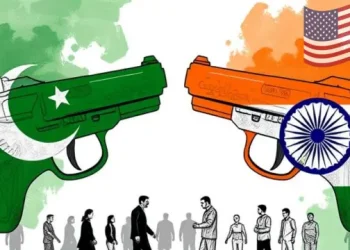Now, recently, the government has borrowed PKR 3.2 trillion in 45 days from domestic banks at 22% interest rates.

The government has purchased $11.2 billion from this amount at today’s existing exchange rate. This is to pay off $27.4 billion as part of the $130.4 billion outstanding foreign debt. The payment of this installment is due by November 2024.
This external liability is besides the budgetary gap of PKR 8.5 trillion, which also needs to be covered during the current financial year.
I am concerned that there could be another assault on the banks to cover this liability. So far, domestic debt liability has soared up to PKR 39.657 trillion besides PSEs’ domestic borrowing of PKR 2.267 trillion.
According to budgetary estimates, projected revenue receipts have been booked at PKR 10.38 trillion. I wonder whether the government will ever be able to make it.
Even FBR failed to collect the PKR 9.4 trillion target and could only get PKR 9.3 trillion, i.e., short by PKR 100 billion. This time, things seem to be even worse.
In an elite capture revenue regime, we could only get negligible revenues, excluding indirect taxes collected at source by the organizations.
Elite Capture — Tax Revenue Receipts
- Salaried people: PKR 326 billion
- Businessmen: PKR 86 billion
- Agriculture: PKR 4 billion
As per reports (DAWN Jun 22, 2024), “FBR spends Rs25 billion only on the salaries, allowances, and perks of its 18,332 employees every year.
Add to this the cost of electricity, buildings, fuel, vehicles, equipment, and numerous operating expenses, and the total may well exceed Rs 50 billion per year.
It operates with an armada of 1,244 government vehicles and an army of 975 drivers — entirely at the taxpayers’ expense. Its output could best be measured by the fact that only 1.8 per cent of people file tax returns and only 1 per cent pay any tax.”
This failure and tax avoidance take the state to easy ways like borrowing from the banks and begging around the globe. On top of that, nobody seems concerned about the circular debt liability of PKR 2.76 trillion on account of capacity charges of the IPPs.
This excessive borrowing has annihilated the banking sector and has left practically no credit available for industrial activity.
There is hardly any niche in running a business by investing capital at 22%, which practically goes up to 30%. Most of the large-scale manufacturing activity has already extinguished.
Since the government has no other source to finance its budgetary gap, commercial banks conveniently capitalize on their potential buyers and keep raising their interest rates.
One can safely presume that after three years, this huge liability is going to double, and that would exact a very heavy price to sustain.
(The writer is a Former Chairman and Managing Director PIA, Former Federal Minister of industries and production)













